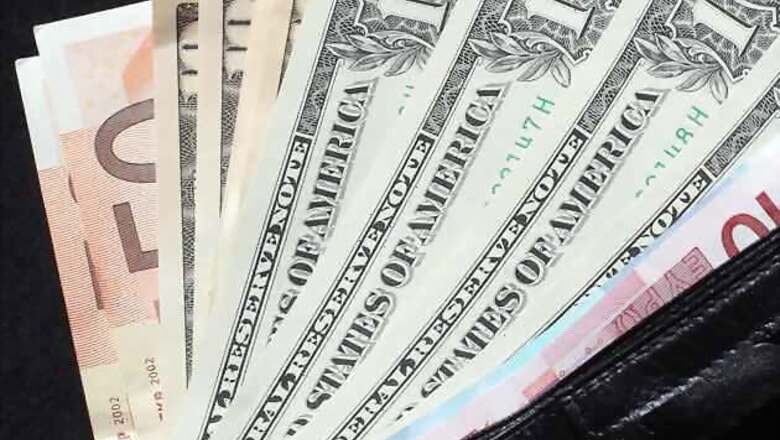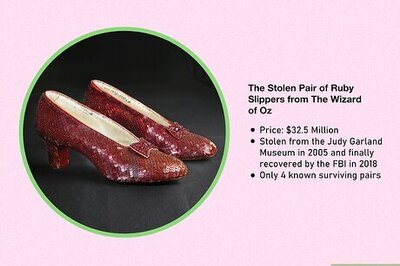
views
Newark: Eighteen people have been charged in what may be one of the largest US credit card fraud rings, a sprawling international scam that duped credit rating agencies and used thousands of fake identities to steal at least $200 million, federal authorities said on Tuesday. The elaborate scheme involved improving fake cardholders' credit scores, allowing the scammers to borrow more money that they never repaid, investigators said.
"The accused availed themselves of a virtual cafeteria of sophisticated frauds and schemes, whose main menu items were greed and deceit," said David Velazquez, assistant special agent in charge of the FBI's Newark field office. The US attorney in Newark, Paul Fishman, described an intricate Jersey City-based con that began in 2007, operated in at least 28 states and wired money to Pakistan, India, the United Arab Emirates, Canada, Romania, China and Japan. The group used at least 7,000 fake identities to obtain more than 25,000 credit cards, Fishman said. Investigators documented $200 million in losses, but the figure could rise, he said.
"Through their greed and arrogance," Fishman said, the people arrested harm credit card companies, consumers and "the rest of us who have to deal with increased interest rates and fees because of the money sucked out of the system by criminals." Participants in the scam set up more than 1,800 mailing addresses, creating fake utility bills and other documents to provide credit card companies with what appeared to be legitimate addresses, investigators said. Once they obtained the cards, they started making small charges and paying off the cards to raise their credit limits, authorities said.
They then sent fake reports to credit rating agencies, making it appear that cardholders had paid off debts, setting the stage for sterling credit ratings and high credit limits, investigators said. Fishman said once the credit limits were raised, participants would take out loans or max out the credit cards and not repay the debts.
He said those who obtained credit cards often added co-conspirators and sham businesses as authorised users, who could piggyback on high credit ratings and open other fraudulent accounts with high credit limits. The group created at least 80 sham businesses that accepted credit card payments, Fishman said. It would run the fraudulently obtained credit cards through the machines, keeping the money, he said.
In one example, prosecutors allege a defendant used a six-year-old boy's Social Security number to obtain a fake utility bill used to open credit card accounts. The scheme funded a lavish lifestyle for the accused, including spa treatments, electronics, luxury cars and millions of dollars of gold, Fishman said. In one raid, authorities said they found $68,000 stashed in an oven.
Authorities allege one man withdrew and wired $1.5 million from personal accounts despite not having a job. They allege another defendant was linked to 12 false identities, stole $2.5 million from 464 credit cards and received $18,000 from two sham companies. Three jewelry stores within blocks of each other in a heavily Indian section of Jersey City were closed Tuesday, and their inventory was seized. All had signs advertising gold jewelry. Their metal security gates were shut, and they were guarded by FBI agents.
Fourteen defendants appeared before a federal judge on Tuesday afternoon. Lawyers said one man was a taxi driver, another a limo driver. Most own property in New Jersey or New York and said they were US citizens. Eight were released, and six remained in custody ahead of a Friday bail hearing. Authorities said many of the defendants had family ties, including a father and son.
Attorney Angelo Servidio, representing defendant Tarsem Lal, said what authorities had done was merely make allegations. "The fact that this is the biggest fraud case brought by this office doesn't mean my client is involved in it," he said. Four of the defendants named in Tuesday's indictment were arrested previously, and three have pleaded guilty. Others haven't been charged, and the investigation is ongoing, Fishman said. Each of the defendants was charged with one count of bank fraud and could face up to 30 years in prison and a $1 million fine if convicted.













Comments
0 comment